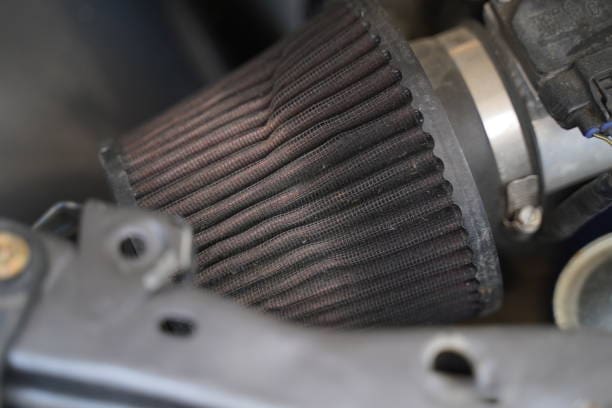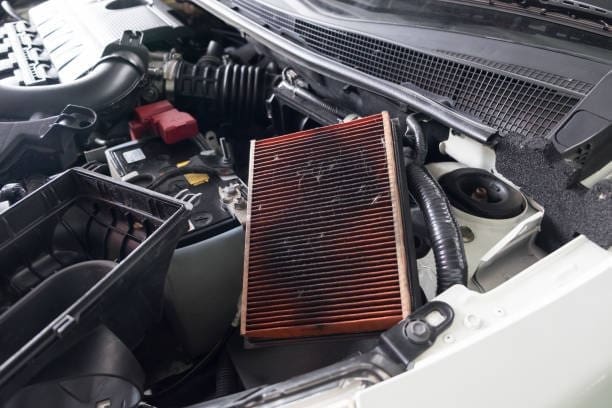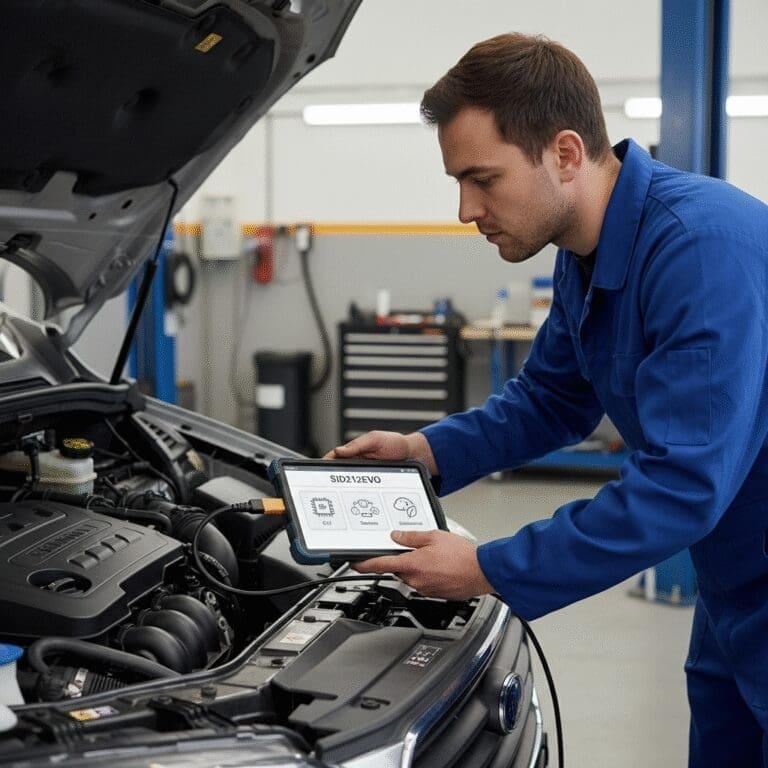Signs of a Blocked DPF Filter, a Diesel Particulate Filter (DPF) is crucial in reducing emissions by trapping soot particles. However, over time, these filters can become blocked, leading to various issues with engine performance and efficiency. Understanding the signs of a blocked DPF filter is essential for vehicle owners to maintain optimal functionality and avoid costly repairs. This comprehensive guide explores the symptoms, causes, and solutions related to blocked DPF filters.
What is a DPF Filter?
Table of Contents
ToggleA Diesel Particulate Filter (DPF) is a device designed to capture and store soot from the exhaust gas of a diesel engine. It forms a critical part of the emissions control system in modern diesel vehicles, helping to reduce harmful particulate matter emissions.

How Does a DPF Filter Work?
- Filtration Process: The exhaust gases pass through the DPF, where soot particles are trapped in the porous walls of the filter.
- Regeneration: To burn off accumulated soot, the DPF undergoes a process called regeneration, where the trapped particles are oxidized into less harmful gases like carbon dioxide.
- Maintenance: Regular maintenance and proper driving conditions are necessary to ensure the DPF functions effectively.
Symptoms of a Blocked DPF Filter
Identifying the signs of a blocked DPF filter early can prevent severe engine damage and costly repairs. Here are common symptoms to watch out for:
- Dashboard Warning Lights: The most obvious indicator is the illumination of the DPF warning light or the check engine light on the dashboard.
- Reduced Engine Performance: A noticeable decrease in engine power and acceleration, often accompanied by poor throttle response.
- Increased Fuel Consumption: A blocked DPF can lead to inefficient combustion, causing the engine to burn more fuel than usual.
- Excessive Exhaust Smoke: Thick, dark smoke emitting from the exhaust pipe, especially during acceleration or under load.
- High Exhaust Temperature: The exhaust system may become excessively hot due to the blocked filter, potentially leading to other component failures.
- Regeneration Failure: If the DPF fails to complete the regeneration process despite attempts, it indicates a significant blockage.
- Odd Smells: Unusual odors from the exhaust, such as a burning smell, can indicate incomplete combustion due to a blocked DPF.
Causes of DPF Blockage
Understanding the causes of DPF blockage is crucial for prevention and maintenance:
- Short Driving Trips: Vehicles that mainly operate on short trips without reaching optimal operating temperatures can’t initiate proper DPF regeneration.
- Low-Quality Fuel: Poor-quality diesel can contribute to increased soot accumulation and premature DPF blockage.
- Faulty Components: Issues with sensors, injectors, or the engine management system can affect DPF regeneration cycles.
- Incorrect Oil Type: Using incorrect engine oil can lead to increased soot production and DPF blockage.
- Driving Style: Excessive idling or consistently driving at low speeds can prevent the DPF from regenerating effectively.

Diagnosing a Blocked DPF Filter
When experiencing symptoms of a blocked DPF, a thorough diagnosis is essential:
- Diagnostic Tools: Use diagnostic scanners to retrieve fault codes and specific data related to the DPF system.
- Visual Inspection: Check the DPF for signs of blockage, such as excessive ash accumulation or structural damage.
- Exhaust Backpressure Test: Measure the exhaust backpressure to determine if it’s within acceptable limits, indicating proper DPF flow.
Solutions to Unblock a DPF Filter
Depending on the severity of the blockage, several methods can be employed to clear a blocked DPF:
- Forced Regeneration: Use specialized diagnostic tools or drive the vehicle under specific conditions to initiate forced regeneration.
- Cleaning Additives: Additives mixed with diesel fuel can help burn off accumulated soot during normal driving conditions.
- Manual Cleaning: In severe cases, the DPF may need to be manually cleaned or replaced by a professional technician.
- DPF Removal: Some vehicle owners opt for DPF removal or bypass services, although legality and environmental considerations vary by region.
Preventive Maintenance Tips
To avoid DPF issues in the future, follow these preventive maintenance tips:
- Regular Servicing: Adhere to manufacturer-recommended service intervals and ensure the DPF system is inspected during maintenance.
- High-Quality Fuel: Use reputable diesel fuel suppliers to minimize soot accumulation.
- Proper Driving Habits: Allow the vehicle to reach operating temperatures regularly and avoid unnecessary short trips.
- Correct Oil Specifications: Use engine oil that meets manufacturer specifications to reduce soot buildup.
- Address Warning Signs Promptly: Immediately address any DPF warning lights or unusual engine behaviors to prevent escalation.
Conclusion
Understanding the signs, causes, and solutions related to a blocked DPF filter is crucial for diesel vehicle owners. By maintaining proper driving habits, adhering to maintenance schedules, and promptly addressing warning signs, vehicle owners can ensure their DPF system operates effectively and efficiently. Regular monitoring and preventive measures will not only extend the lifespan of the DPF but also contribute to cleaner emissions and improved vehicle performance.



